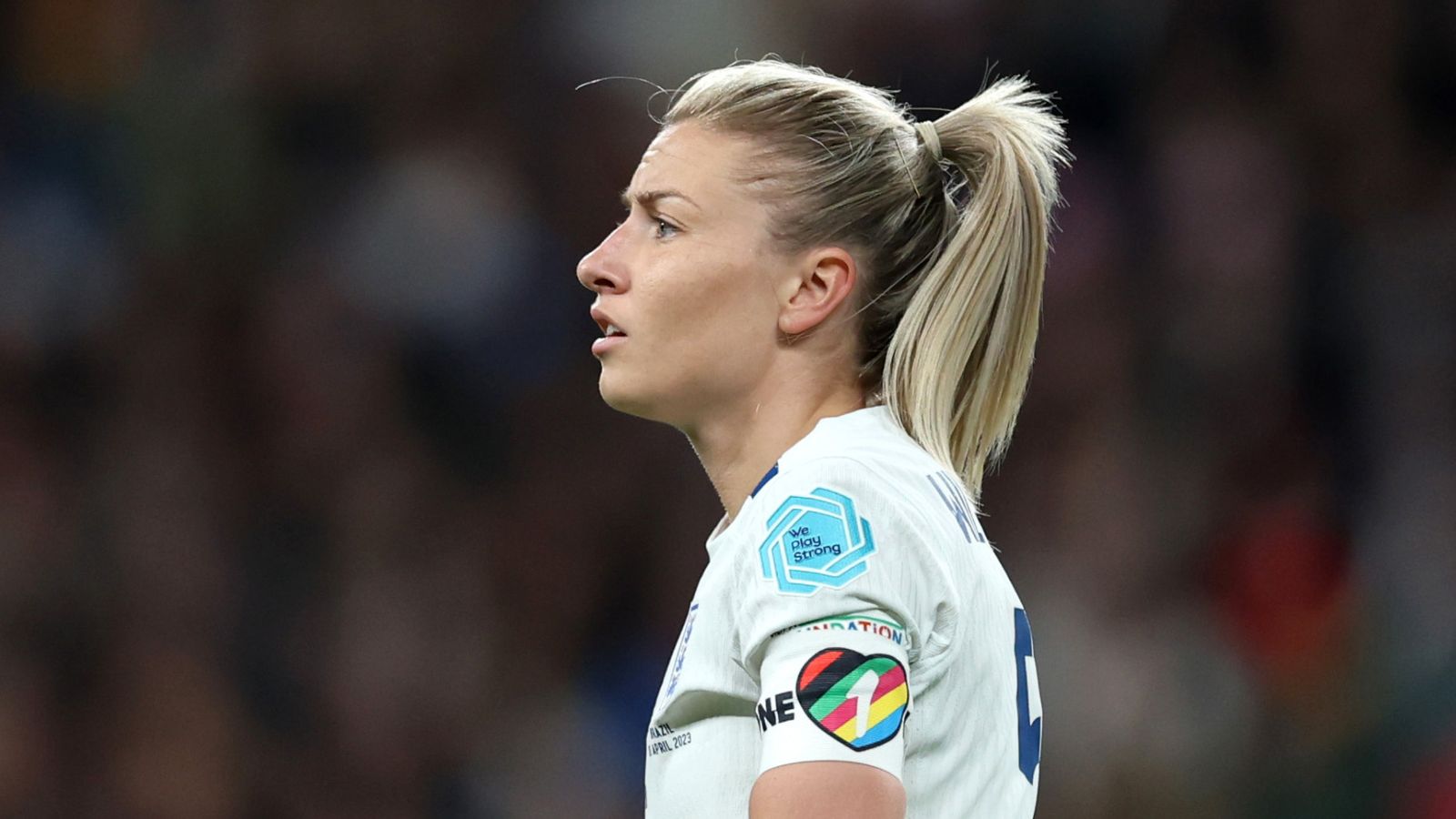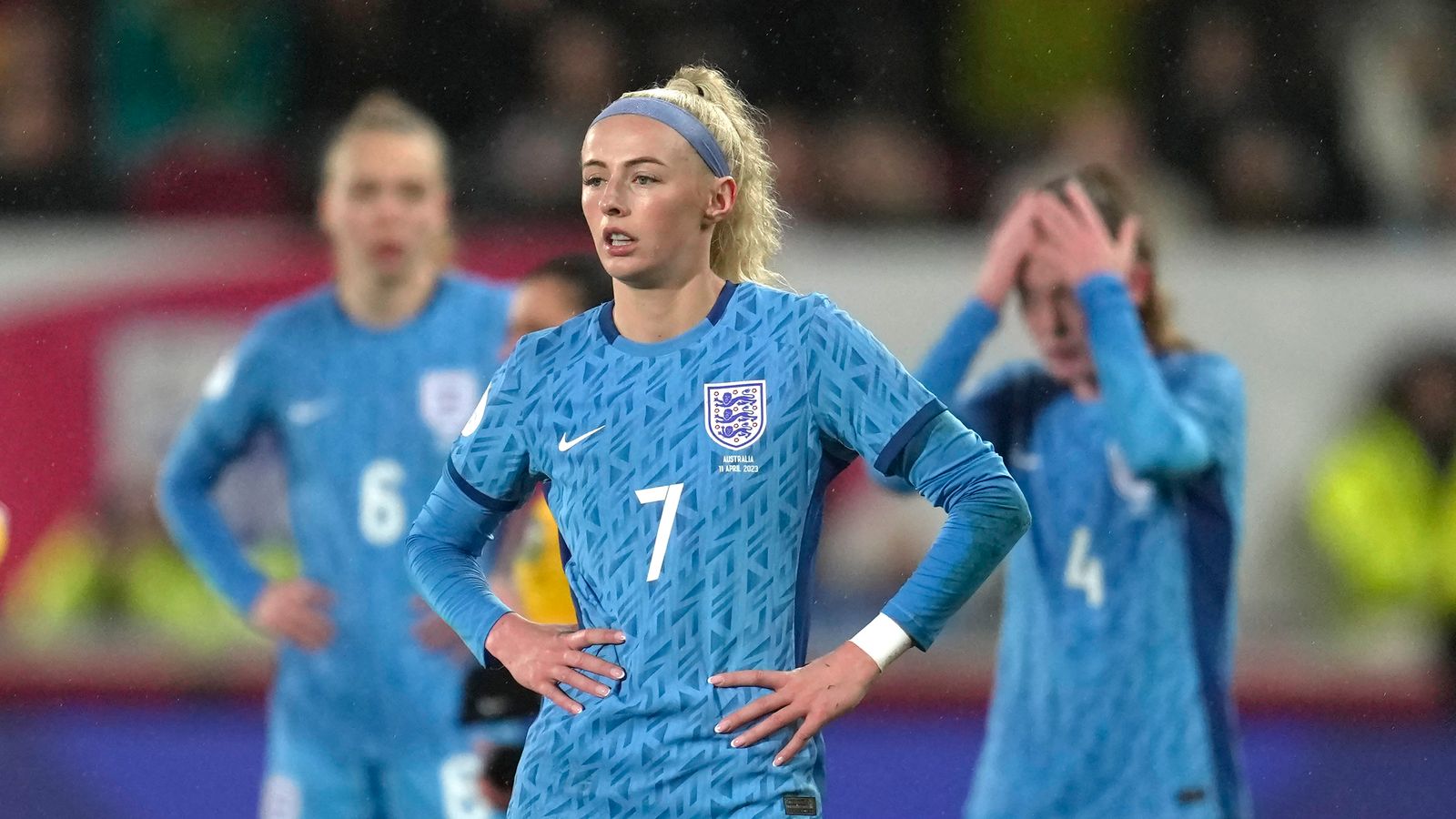
FIFA's Controversial Ban on 'One Love' Armband at Women's World Cup Sparks Outrage

FIFA upholds ban on One Love armbands for England Women's World Cup, despite controversy at men's tournament Lionesses forced to choose from FIFA-approved alternatives Lack of support for LGBTQ+ rights is concerning
FIFA has revealed eight 'Unite' messages that players can endorse during the Women's World Cup. However, the prohibition on wearing the 'One Love' armband will continue to be enforced. This armband sparked controversy in the previous men's World Cup held in Qatar, with England and six other participating teams initially intending to wear it but ultimately retracting their decision due to potential sanctions imposed by FIFA.
World football's governing body has reaffirmed its position for the upcoming Women's World Cup in July. However, despite providing eight approved alternatives, the organisation has not included any mention of LGBTQ+ rights. While players and teams are permitted to advocate for social causes at their training bases and before or after games, any on-pitch messages that do not align with FIFA regulations will face penalties.
The colours of FIFA's 'unite for inclusion' band represent race and heritage (red/black/green) as well as all gender identities and sexual orientations (pink/yellow/blue). These color combinations draw inspiration from the Pan-African flag and the pansexual flag.
Football has the ability to bring people together and create joy, excitement, and passion. The FIFA Women's World Cup, as a global event, has the unique power to unite the world. FIFA president Gianni Infantino recognizes this and believes that football can also draw attention to important social issues. Following discussions with various stakeholders, including member associations and players, it has been decided to promote a range of social causes throughout all 64 matches of the tournament. These causes include inclusion, gender equality, peace, ending hunger, education, and tackling domestic violence.
In response to FIFA's announcement, the FA released a statement stating that FIFA had consulted with federations and players globally regarding the armbands to be worn during the FIFA Women's World Cup. The FA further mentioned that it was now up to the players to select their preferred armband option.
Prior to the announcement, England midfielder Georgia Stanway expressed to reporters that the Lionesses had initially intended to wear the 'One Love' armband in Australia. She emphasized that regardless of FIFA's decision, the team still supported the sentiment behind the armband.
"We remain steadfast in our commitment, regardless of the final result. Whether in our favor or not, we stand firmly for our principles," she remarked.
"Whether permitted or denied the privilege to wear the armband, our desire to do so remains unwavering. We will persist in upholding our beliefs and pursuing the resolution we had envisioned, irrespective of the outcome."
Analysis: Absence of official backing for pro-LGBTQ+ stance is glaring
England boss Sarina Wiegman, when asked about the Lionesses' plans for a resolution, expressed confidence in a positive outcome. She acknowledged ongoing conversations and anticipated hearing about the solution soon. Wiegman remained optimistic that the proposed resolution would align with the team's needs.The causes being promoted by FIFA at this tournament are in collaboration with the United Nations and World Health Organisation. These causes include promoting inclusivity, ending hunger, and providing education for all. However, what is noticeably absent is any official support for the LGBTQ+ community, which is particularly intriguing considering that a significant number of tournament participants are members of this community.
Many individuals will feel let down by the lack of clear explanation from FIFA regarding this matter. This will inevitably frustrate certain players who strongly care about the freedom to express their solidarity in a way that is meaningful to them.













